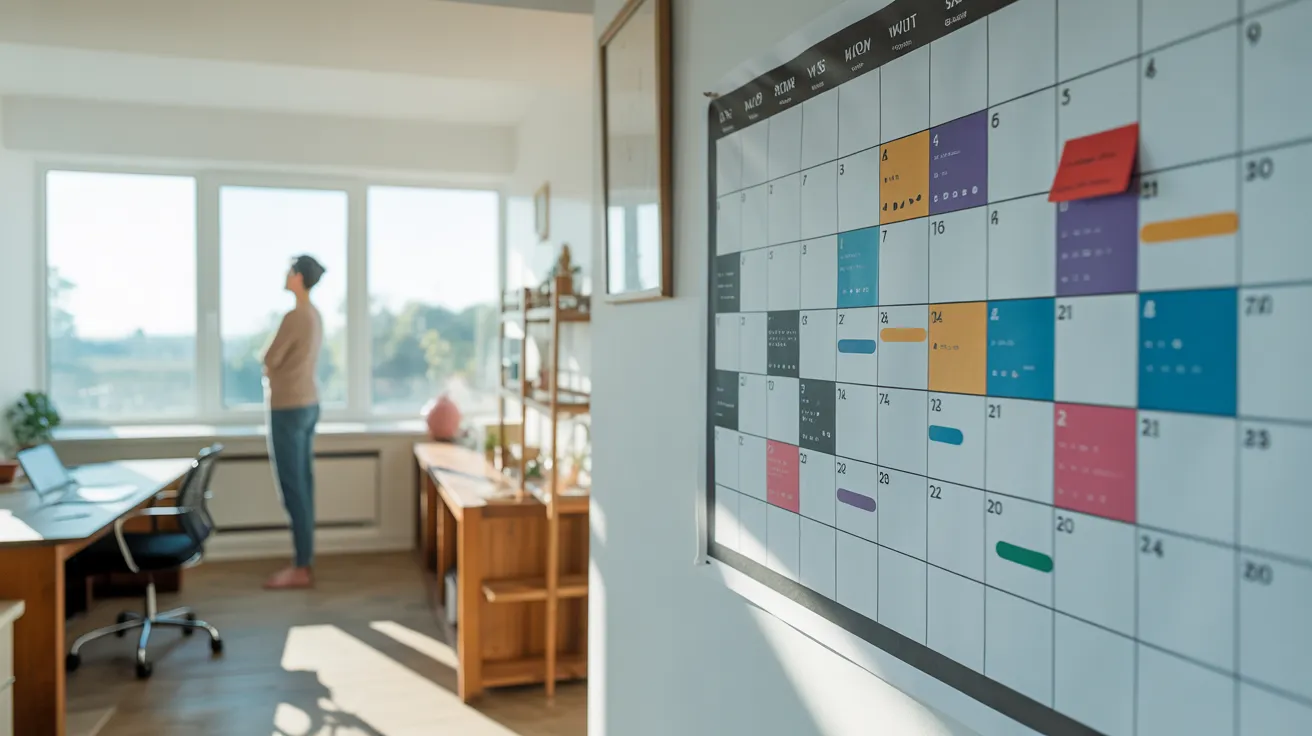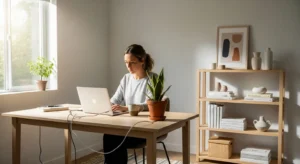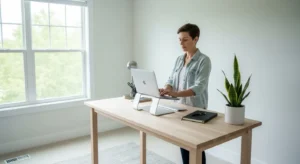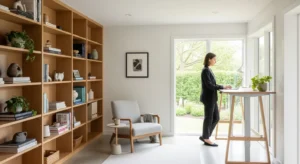
Your First Steps to a Calm, Productive Desk
Transforming your workspace from a cluttered source of stress to a calm platform for focus is not an overnight project. It’s a practice. It’s about building a new set of small, sustainable habits that work for you, in your space. Forget about achieving a picture-perfect desk and concentrate instead on creating a system that feels easy to maintain. The goal is to design an environment where tidiness is the natural outcome, requiring very little thought or willpower.
You now have the framework to declutter your desk and, more importantly, to keep it that way. The power lies in the consistent application of these simple ideas: giving everything a home, touching things only once, and resetting your space regularly. Start small, be consistent, and notice how a clear desk leads to a clearer mind.
Here are three simple resets you can implement this week to begin your journey to a productive desk setup with no clutter:
1. Define Your Three Working Zones. Take five minutes right now. Look at your desk and mentally (or with small sticky notes) designate your primary, secondary, and tertiary zones. Move one item that is in the wrong zone to its correct home.
2. Create a Physical “Inbox.” Find any tray, box, or even a designated corner of your desk. For the next three days, commit to putting every new piece of paper that comes your way into this single spot. This one action will immediately stop new piles from forming.
3. Schedule Your First Daily Reset. Open your calendar and schedule a 10-minute appointment with yourself at the end of your workday today, tomorrow, and the next day. Label it “Desk Reset.” When the reminder pops up, honor it. Put things away, process your new inbox, and wipe the surface. This is the most powerful habit you can build.
By taking these small, deliberate steps, you are not just cleaning your desk. You are designing a system for lasting calm and productivity.
Disclaimer: The information provided in this article is for informational purposes only and does not constitute professional, financial, or legal advice. Please consult with a qualified professional for advice tailored to your specific situation.



